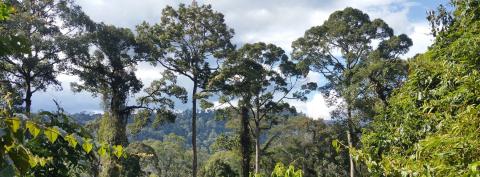First-cycle oil palm plantations sustain high biodiversity, but second generation supports less diversity of invertebrates
In our previous issue of Sourcing Hub newsletter, we looked at the “IPBES Global Assessment Summary for Policy Makers” that warns up to one million plant and animal species are in danger of becoming extinct because of increased food demands, unsustainable energy harvesting and deforestation worldwide.
Following on that summary, IPS warned that about 75 per cent of the world’s food crops relies on pollination by animals such as bees, butterflies, bats and hummingbirds.
A new research paper from Ecology and Evolution found that second-generation oil palm plantations support 20 per cent less diversity of invertebrates and 59 per cent fewer animals than the first generation palm oil plantations. However, the paper’s authors also say first-cycle oil palm plantations can sustain relatively high biodiversity compared to other crops. According to EU Palm Oil Alliance, the oil palm tree is the most efficient oil crop in terms of land use as it has the highest yield compared to other oil crops per hectare of land.
So, should consumers boycott products that contain palm oil? Several recent reports have described boycotting palm oil is not the solution but instead, the only alternative is credibly certified sustainable palm oil. In this opinion piece, Penny Coates, non-executive director of a private brand grocery retail specialist, S4RB says sustainably sourced palm oil is a better option than some alternative oils, such as rapeseed oil. “The reality is that palm oil is an efficient crop that generates high yields from a relatively small amount of land,” she says.

International non-governmental organisation WWF-Malaysia echoes a similar view in this opinion piece saying boycotting palm oil is neither an answer nor a solution. WWF-Malaysia Conservation Director Dr Henry Chan says it is unsustainable agricultural production that impacts the environment, affecting greenhouse gases and polluting freshwater. Banning and substituting palm oil with other crops would require more land, resulting in larger expanses of forest conversion to plant these crops. As such, WWF works with the palm oil and other vegetable oil sectors towards sustainability.
NEPCon also works with palm oil companies towards sustainability. Additionally, we developed comprehensive palm oil risk assessments in the following countries – Ghana, Indonesia and Malaysia. We have recently developed three reports for “Sustainability Reporting for Palm Oil Companies” project. You can download the reports to find out how to document environmental activities into quantifiable results.


